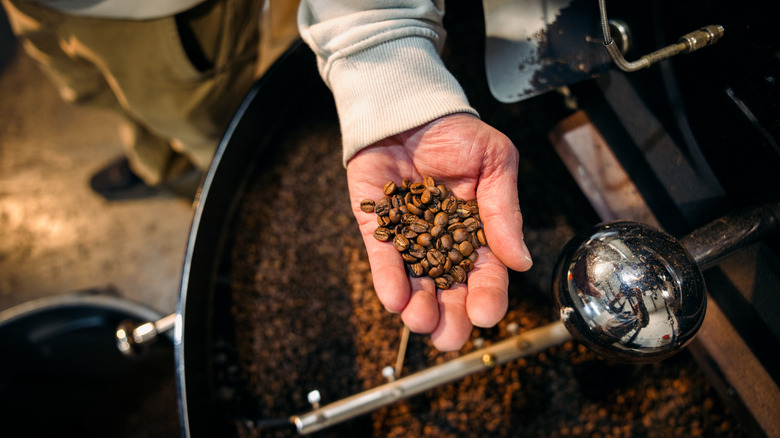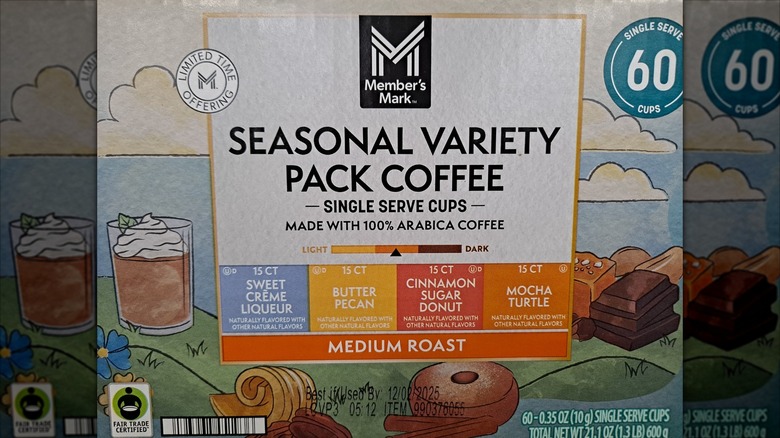The Brands That May Be Behind Sam's Club's Member's Mark Coffee
Warehouse retail aficionados will quarrel on and on about the differences between Costco and Sam's Club, but the truth is that the two membership clubs have a lot in common. Sure, there's a connection between Sam's Club and Walmart that Costco doesn't possess, but if you visit both stores, you will likely have very similar experiences, with great deals on bulk and specialty products and services. Since we investigated the brand behind Costco's coffee, now we're shedding light on the source of Sam's Club's Member's Mark coffee. Or, at least, we're trying to, as the actual answer is shrouded in mystery.
Sam's Club offers a wide range of its house brand Member's Mark coffee in several different roasts, and you can currently get it in whole beans, grounds, or even single-serving K-Cups. The Member's Mark brand itself has stated that it works with several different roasters on its coffee, depending on the product. This might be a way to get the best prices possible (all the better to pass the savings along to customers, naturellement), along with the stated intent to let each roaster focus on producing their best sort of coffee.
Beyond that, much current "info" on precisely who roasts Member's Mark coffee is based on speculation centering on taste and location. A few names have been floated as the sources of particular products, like Brazilian roaster Cafe Bom Dia for the Member's Mark Premium Ground, Juan Valdez for Colombian whole bean, Club Coffee LP, and an unnamed Bentonville, Arkansas roaster that would be close to the company's headquarters. However, Sam's Club itself is keeping mum.
What goes into choosing a supplier for private-label brands?
Although many consumers viewed "generic" or store-label groceries as inferior a generation ago, these budget-minded substitutes have had an industrywide glow-up in the last few decades. But why outsource key parts of the process? It would be prohibitively expensive for every retailer to get into the manufacturing game for every private-label product it carries, for one. Outsourcing store-label groceries is a way to pass savings along to customers while maintaining the high quality and flavor that the name brands are known for. Picking experienced suppliers that can focus on quality, reliability, and ability to meet store standards further amps up the reputation.
In fact, the 2020s have seen a trend towards grocers transforming generic offerings with premium presentation, shelling out on appealing packaging that indicates the high quality of the item inside. The actual products tend to be better than they once were, too, providing great value to those who aren't loyal to brand names.
For warehouse clubs like Sam's Club and Costco (well-known for its own cult-favorite Kirkland Premium house brand), presenting private-label goods is all about striking a balance between quality and price, since warehouse shoppers expect good deals. While it can be frustrating to lack transparency on the sourcing of your Sam's Club coffee, it's likely that the murky answer behind the provenance of Member's Mark java offerings has to do with a complicated calculus of cost and worthiness, not any attempts at obfuscation.

